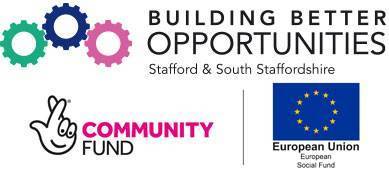Returning to work after sickness Employment
A period of absence from work due to sickness can be difficult both financially and emotionally. And returning to work isn’t always easy. If you quit your job to take a career break due to ill health, you may feel out of touch, low in confidence and ill-equipped to return to the workplace. If you are planning to return back to a current role after a period of illness, you may also feel nervous or apprehensive about how you’ll readjust to the workplace or interact with your colleagues.
Returning to work after an absence
First of all, it’s important to make sure you feel well enough to return to work. Doing so before you are ready, either emotionally or physically, can lead to another period of absence. So consider this carefully along with the type of support you might need before and during your return.
It may be that your GP recommends a phased return, amended duties or workplace adjustments to make your return to work easier. This is when you return to your full duties or working hours gradually over an agreed period of time or changes are made to your duties. If this is the case, ensure you highlight this to your employer.
Finding a job after sickness
If you aren’t employed currently but would like to return to work following a period of sickness, we can help and support you to make the transition. You may feel low on confidence, or anxious about going into a new workplace – especially if you’ve been ill for a while. This is completely normal, and there are a range of ways to manage this positively.
Mind the gap
For many people who have had no choice but to take a break from work due to illness worry about explaining the gap in their work history to an interviewer. The key to overcoming this is honesty.
When preparing your CV, make sure the gap is explained both on the timeline of your work history and in your personal statement. You do not have to go into too much detail about this. Simply stating that you took time off work to undergo treatment related to ill health is enough.
Find the positives
When we are worried about something, it can be easy to focus only on the negatives. But it may be that you can highlight activities you did while you were off sick to your advantage. For example, if you underwent a training course (online or otherwise) or volunteered in that time, that is worth mentioning in your job application.
Regardless of the period of time you spent out of work, you do have valuable skills and experiences. Make sure you highlight these achievements on your CV, as well as outlining any previous paid employment.
If you haven’t been able to do any of the things listed above, consider trying them before you start searching for a job. At Building Better Opportunities, we can help connect you to free training and personal development opportunities that not only look good on job applications but also help you to build your confidence and help you find a field of work you are passionate about.
Doing something like this shows that you are motivated and ready to return to work. What’s more, voluntary experience and work placements can help you get back into a routine and provide you with a recent reference you can use in your job search.
Look after yourself
Finding a job after being off sick can be mentally and physically exhausting for some people, regardless of whether their illness is physical or mental health related. For that reason, make sure you have a strong and supportive network around you. This can be in the form of family and friends. Or, a counsellor or trusted confidant.
At Building Better Opportunities, we regularly support individuals who are returning to work after a period of absence. This includes employment support, financial advice, help with your health and wellbeing and personal development.
Don’t feel that you have to return to work straight away. It may take some time to build your confidence and get to a place where you feel ready. If you are considering a return to work after illness, contact us or pop into one of our drop-in sessions. Our programmes are totally free and each one is bespoke to the individual.
To find out more, give us a call today on 01902 696 228 or fill out the online form below to request a call back from an advocate.
